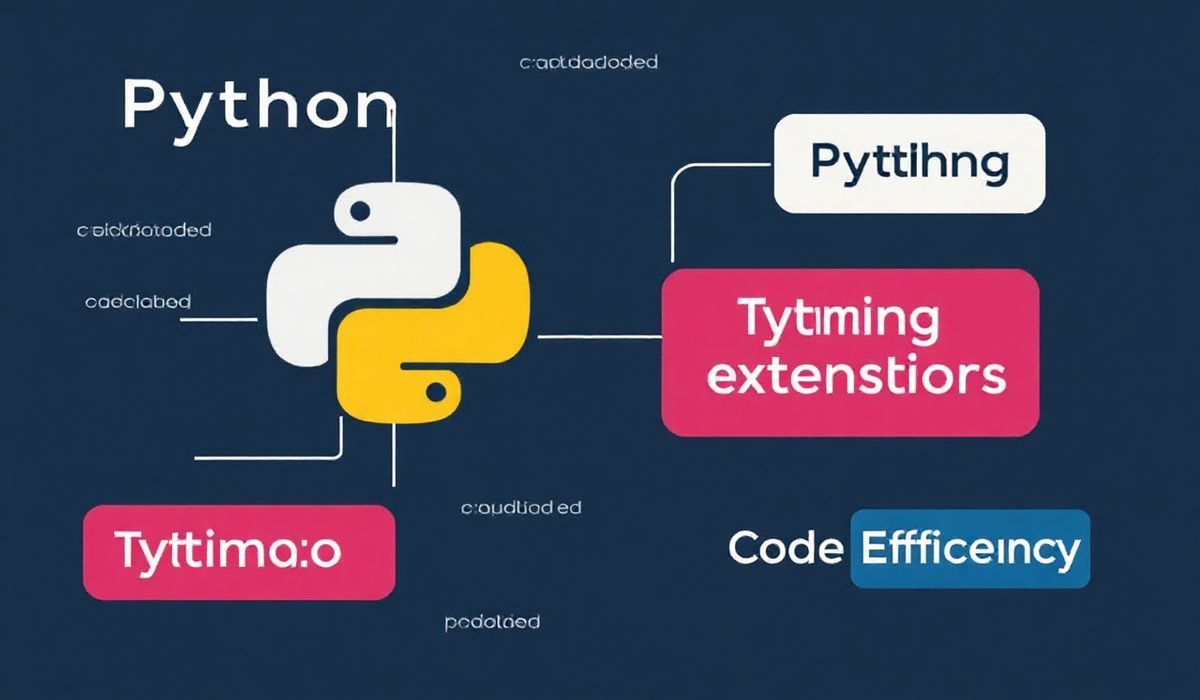Comprehensive Guide to Typing Extensions for Python Developers
The Python library typing-extensions is an essential companion to Python developers who embrace type annotations. It extends the functionalities of the built-in typing module with forward-compatible APIs that make your code cleaner, readable, and future-proof. Whether you are using an older Python version or want to future-proof your application against upcoming improvements in typing, typing-extensions is your go-to library.
What is Typing-Extensions?
The typing-extensions library provides experimental and new typing features that may not yet be included in the standard typing module of Python, or are only available in newer Python versions. By using this library, you can take advantage of advanced typing tools while maintaining compatibility with older Python versions.
Key Features and APIs of Typing-Extensions
1. TypedDict
TypedDict allows you to define dictionary-like objects with checked keys and value types, ensuring type safety when working with dictionaries.
from typing_extensions import TypedDict
class User(TypedDict):
name: str
age: int
email: str
user: User = {"name": "Alice", "age": 25, "email": "alice@example.com"}
# This would raise a type error
# user = {"name": "Alice", "age": "25", "email": "alice@example.com"}
2. Literal
Use Literal when you want a variable to have a fixed set of possible values.
from typing_extensions import Literal
def set_status(status: Literal["open", "closed", "pending"]) -> str:
return f"Status set to {status}"
set_status("open") # Correct
# set_status("invalid") # This would raise a type error
3. Annotated
The Annotated type allows you to attach metadata to types, which can be particularly useful for tools like data validators or serializers.
from typing_extensions import Annotated
def process_item(item: Annotated[int, "Must be non-negative"]) -> None:
if item < 0:
raise ValueError("Item must be non-negative")
print(f"Processing {item}")
process_item(10) # Works fine
# process_item(-5) # Raises ValueError
4. NotRequired and Required
These APIs allow precise control over which keys in a TypedDict are mandatory or optional.
from typing_extensions import TypedDict, NotRequired
class Config(TypedDict):
debug: NotRequired[bool]
version: str
config: Config = {"version": "1.0"} # 'debug' is optional
5. Self
Introduced in Python 3.11, the Self type allows for more expressive method signatures in classes. This is available via typing-extensions if you are on older Python versions.
from typing_extensions import Self
class FluentBuilder:
def set_name(self, name: str) -> Self:
self.name = name
return self
def build(self) -> dict:
return {"name": self.name}
builder = FluentBuilder().set_name("Alice").build()
print(builder) # Outputs: {'name': 'Alice'}
Practical Example Using Typing-Extensions
Below is an example of a small app that applies the introduced APIs in a user management system:
from typing_extensions import TypedDict, Literal, Annotated, Self
# 1. Define a TypedDict for user profiles
class UserProfile(TypedDict):
name: str
age: Annotated[int, "Must be >= 0"]
role: Literal["admin", "user", "guest"]
# 2. Use Self to create chainable methods for user management
class UserManager:
def __init__(self) -> None:
self.users = []
def add_user(self, profile: UserProfile) -> Self:
self.validate_profile(profile)
self.users.append(profile)
return self
def validate_profile(self, profile: UserProfile) -> None:
if profile["age"] < 0:
raise ValueError("Age must be non-negative")
if profile["role"] not in ["admin", "user", "guest"]:
raise ValueError(f"Invalid role: {profile['role']}")
def get_users(self) -> list[UserProfile]:
return self.users
# 3. Instantiate the user manager and manage users
manager = UserManager()
manager.add_user({"name": "Alice", "age": 30, "role": "admin"}).add_user({"name": "Bob", "age": 25, "role": "user"})
print(manager.get_users())
Conclusion
The typing-extensions library extends Python's static typing capabilities, making your code robust, readable, and easier to scale. Whether you're working with dictionaries, metadata annotations, or fluent builder classes, typing-extensions provides a powerful and future-proof toolbox for Python developers.
Further Suggestions
Explore more about typing and stay updated with the Python typing ecosystem to ensure you are using the most efficient tools for modern software development.




